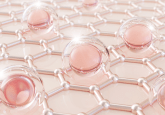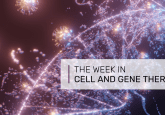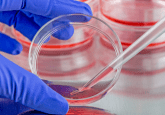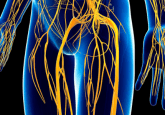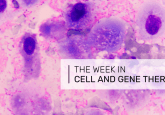Harvesting a safer PSC culture to reduce tumor formation

Researchers have identified a novel cell surface marker that might decrease the risk of tumor formation after stem-cell transplantation.
A team of researchers from the Nara Institute of Science and Technology (NAIST; Nara, Japan) has discovered a novel cell surface marker that may prevent stem cells from differentiating into specialized cells. The research team, led by Atsushi Intoh and Akira Kurisaki, conducted a series of experiments utilizing cultured pluripotent stem cells (PSCs) from both mice and humans to investigate the role of the membrane protein EPHA2 in stem-cell differentiation and tumorigenesis. The findings from this study have the potential to improve the safety and efficacy of stem-cell based treatments aimed at repairing damaged organs and tissues.
PSCs, with their remarkable ability to differentiate into a vast range of specialized cell types, hold great potential for regenerating and repairing damaged tissues and organs, providing a treatment option for many conditions through cell-based therapies. While PSCs hold great potential for regenerative medicine, there are numerous obstacles that hinder the safety and efficacy of PSC-based therapies for patients. One of the primary challenges is the risk of tumor formation after transplantation, which can occur when some undifferentiated or partially differentiated cells remain in the culture, leading to tumor formation in the target organ.
For PSC-based therapies to be safe and effective, it is crucial to minimize the risk of tumorigenesis by ensuring that PSC cultures are fully differentiated before they are transplanted into patients. This has led to an increasing drive for researchers to actively develop methods to improve the purity and safety of PSC-derived cells for regenerative therapies.
In a previous study, the team identified EPHA2 as a membrane protein that is elevated in PSCs prior to differentiation. As such, the team at NAIST conducted several experiments utilizing mouse and human stem-cell cultures to further explore the association of EPHA2 with the potency of PSC differentiation.
 A ‘one-size-fits-all’ future for gene editing treatments
A ‘one-size-fits-all’ future for gene editing treatments
Researchers have identified a novel cell surface marker that might decrease the risk of tumor formation after stem-cell transplantation.
Interestingly, they found that in stem cells, EPHA2 is co-expressed with the transcription factor protein OCT4, which is known to control the expression of genes pivotal to the process of stem-cell differentiation. When the researchers removed the EPHA2 gene from the cells, they noticed a change in behavior of the stem cells: the cultured cells spontaneously differentiated.
The researchers hypothesized that stem cells expressing EPHA2 do not undergo differentiation, potentially leading to tumor formation. To test this hypothesis, the researchers artificially induced a PSC culture to differentiate into liver cells. Then, they extracted EPHA2-positive cells from select number of cultures
The ability to identify and remove EPHA2-positive cells in cell cultures could revolutionize the screening process for PSC-based therapies before transplantation in patients, which may offer a solution to minimize the risk of tumorigenesis.
Kurisaki commented on the importance of EPHA2 stating that it, “… conclusively emerges as a potential marker for selecting undifferentiated stem cells, providing a valuable method to decrease tumorigenesis risks after stem-cell transplantation in regenerative treatments.”
With further research on EPHA2, protocols may be developed to advance the safety of PSC-based therapies for regenerative medicine treatments.

